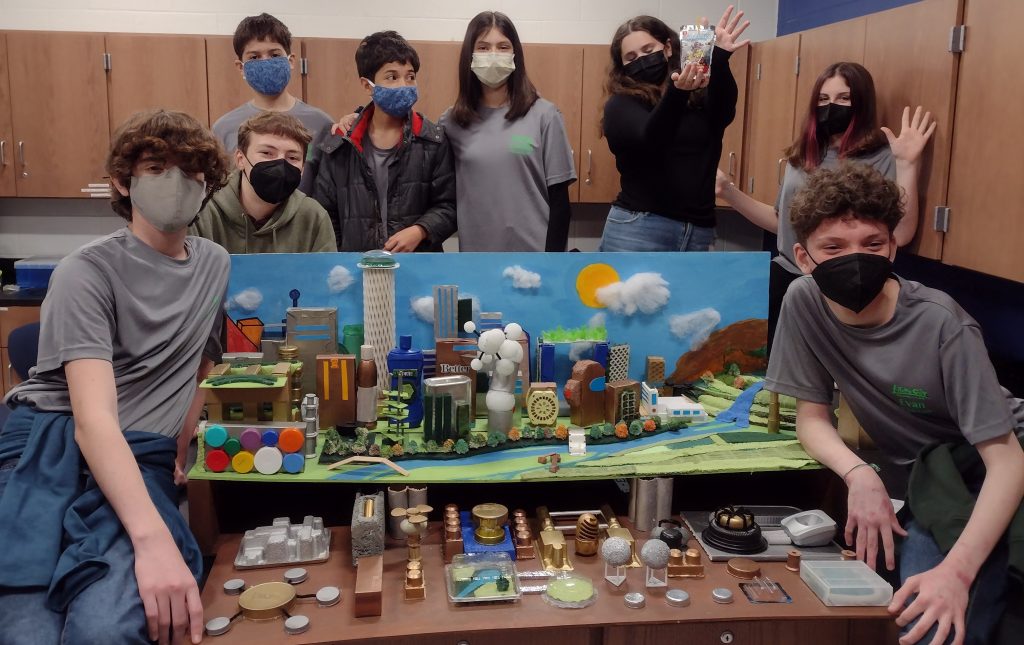
The Engineering Club at Howard Bishop Middle school in Gainesville, FL has a lot to cheer about this year. After finishing second place in the Tampa Bay regional Future City CompetitionTM the last two years, the team finished first this year and went on to compete at the national competition. Ondine Wells, STRIDE K-12 Coordinator at UF, who has mentored the club since its inception said, “It was exciting to see students grow their knowledge and expertise about engineering and city design over three years. This year was a perfect culmination of all of their hard work and dedication.” As mentor, Ondine guided the team through the engineering design process and connected them with engineering experts at the University of Florida.
In order to participate in the Future City CompetitionTM students envision, research, design, and build a city set 100 years in the future. The team’s city must include critical infrastructure, city services, transportation systems, futuristic technology, and resources for vulnerable populations. In order to participate in the competition, the students complete five deliverables: a 3-dimensional scale model of their city built using recycled materials, a 1,500 word essay, a 6-minute video presentation, a project plan, and a live question and answer session with judges. The students’ futuristic city called Novastum incorporated autonomous public transportation, nuclear fusion energy, potable reuse wastewater system, vertical gardens, and streets designed to prioritize micromobility and walking.
Each year the Future City program identifies a new challenge for students. This year’s challenge was to design a zero-waste city with a circular economy. In order to learn more about this year’s topic, the team met with Dr. Sara Behdad, associate professor at the University of Florida Engineering School of Sustainable Infrastructure & Environment and Director of the GETCOT lab (Green Engineering Technologies for the Community of Tomorrow). Dr. Behdad shared her innovative research on e-waste and how Artificial Intelligence can be used in product lifecycle engineering. Students incorporated many of these ideas into their city including blockchain product tracking and internet of things. Dr. Behdad said, “It is always rewarding to see how academic research can support circular economy education. I am delighted to see this level of excitement and dedication of young students. I truly believe that educating younger kids plays a significant role in accelerating society’s movement towards sustainable development.”
During the Tampa Bay regional competition (held virtually this year), three team members answered questions from multiple panels of engineer judges. In addition to winning first place, the team also received a number of special awards including the Most Resilient City (sponsored by Jacobs), the Most Holistic City (sponsored by PGA), and Outstanding Use of Circular Economy Principles (sponsored by ASABE).
The team went on to compete at the national level which was also held virtually this year. The teams were interviewed again by more than 10 different panels of judges and won the Most Advanced Smart Grid Award sponsored by IEEE-USA (Institute of Electrical and Electronic Engineers). The student’s model and video presentation can be viewed at https://www.youtube.com/watch?v=zw7ne6SurKw.
The Future City CompetitionTM (futurecity.org) program is a program run by DiscoverE (discovere.org), the creators of National Engineers WeekTM and Introduce a Girl to Engineering DayTM.